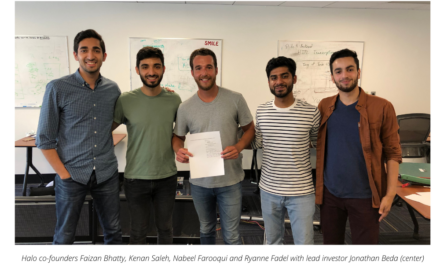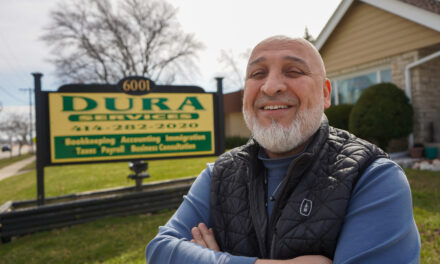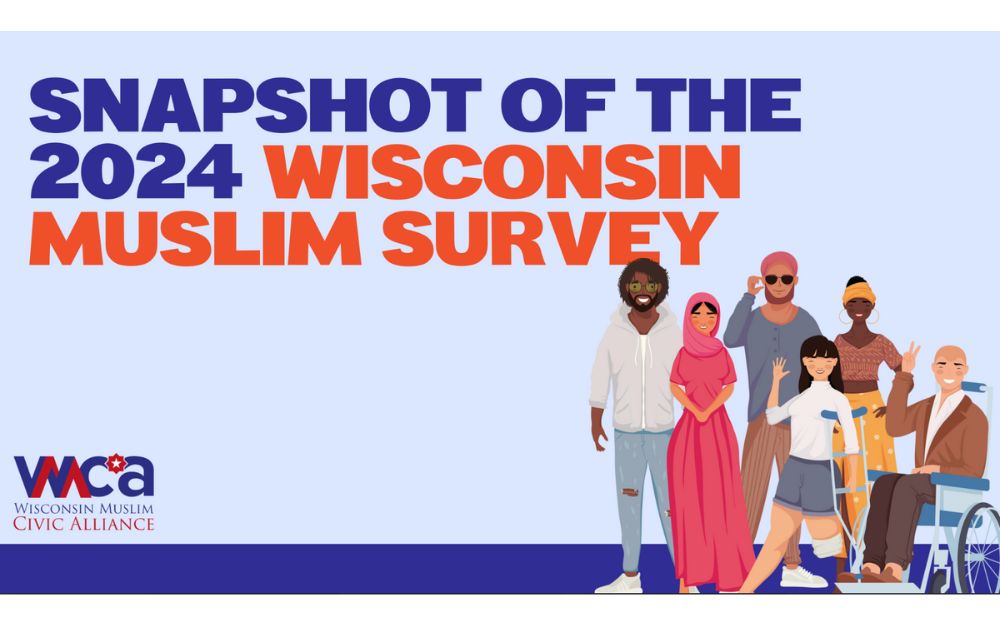
Graphics courtesy of Wisconsin Muslim Civic Alliance
The second annual Wisconsin Muslims Survey reveals a change in top issues of Wisconsin Muslims voters
since 2023.
The second annual Wisconsin Muslim Civic Alliance’s Wisconsin Muslim Survey reveals state Muslims continue to be highly engaged voters and that they are more concerned about U.S. foreign policy and military involvement than they were in 2023.
“The 2023 survey was done before Oct. 7 (the beginning of war in Gaza),” explained WMCA executive director Fauzia Qureshi in an interview last week. In 2023, foreign policy ranked sixth behind healthcare, education, the economy, gun violence and Islamophobia as an issue of concern for Muslim voters.
Since then, U.S. foreign policy moved to the number one issue for Wisconsin Muslim voters, apparently due to the devastating impact of the Israeli military’s unrelenting bombing of Gaza, with U.S. support, which has caused an immense loss of Palestinian civilian lives from direct violence and war-inflicted starvation and disease. An article in The Lancet medical journal in July 2024 estimated that there were 186,000 direct and indirect deaths attributable to the war in Gaza as of June 19, 2024. And 96% of Gaza’s population currently faces acute levels of food insecurity, with 2.15 million people in crisis levels of hunger or worse, according to research from Brown University.

This Wisconsin Muslim Journal article features the first public release of the 2024 Wisconsin Muslim Survey. It was presented Oct. 16 to the WMCA board and Nov. 17 to WMCA’s Strategy Committee.
WMCA is an organization that works “to empower and amplify the voices of the Wisconsin Muslim community through civic engagement, research and advocacy, striving to foster a more inclusive and equitable society for all Wisconsinites,” its mission statement says.
Taking the pulse of Wisconsin Muslims
The 2024 Wisconsin Muslim Survey was taken from mid-August through the first week of October. More than 2,000 postcards about the survey were mailed to contacts in WMCA’s voter file; emails were distributed to lists from organizations with a large Muslim membership; and social media posts on platforms viewed by Wisconsin Muslims. During that period, WMCA received 316 survey responses.
It was available in four languages: English, Arabic, Turkish and Spanish.
The survey reached Muslims across the state, not only in Greater Milwaukee, Qureshi added.
WMCA’s first Wisconsin Muslim Survey, conducted in 2023, aimed to offer data to guide policymakers, corporations, media organizations and individuals aiming to deepen their understanding of and support for the Wisconsin Muslim community. This year’s survey will continue to serve that purpose but also to inform WMCA’s advocacy and policy work, Qureshi said.
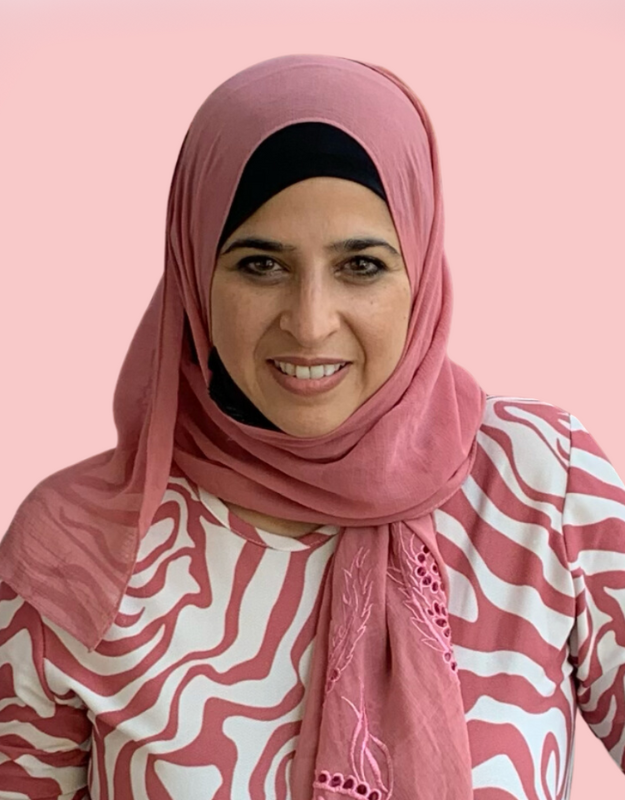
Fauzia Qureshi, WMCA executive director
“When I started (April 1, 2024), I wanted to make sure we had a strategic framework,” Qureshi said. “Part of that framework was making sure WMCA can do advocacy as well as policy work.” To that end, a policy lead position was created and WMCA hired attorney Fatima Malik in July to fill it.
“Having Fatima on the team has been instrumental in us actually moving forward with that part of our strategic framework, which is making sure that we can get that advocacy and policy moving forward,” Qureshi said.
“We want to focus on the areas people really care about and the issues they are facing in their lives,” Malik told WMJ. “We learned that foreign policy and Islamophobia really matter to us as Muslims in Wisconsin. Those are two issues we will be focusing on in our advocacy work.”
WMCA will hold its first Advocacy Day in Madison Feb. 19 “and we really hope a lot of community members will be involved,” Malik added. The organization will also offer training for participants in advance.
(Watch WMJ for more information on advocacy day and how to get involved.)
Wisconsin Muslims’ high civic engagement
Wisconsin Muslims vote and stay informed about civic matters, the 2024 Wisconsin Muslim Survey shows. Ninety percent of the respondents are registered to vote. The majority agreed they are informed about the voting process (42% strongly agreed and 36% agreed).
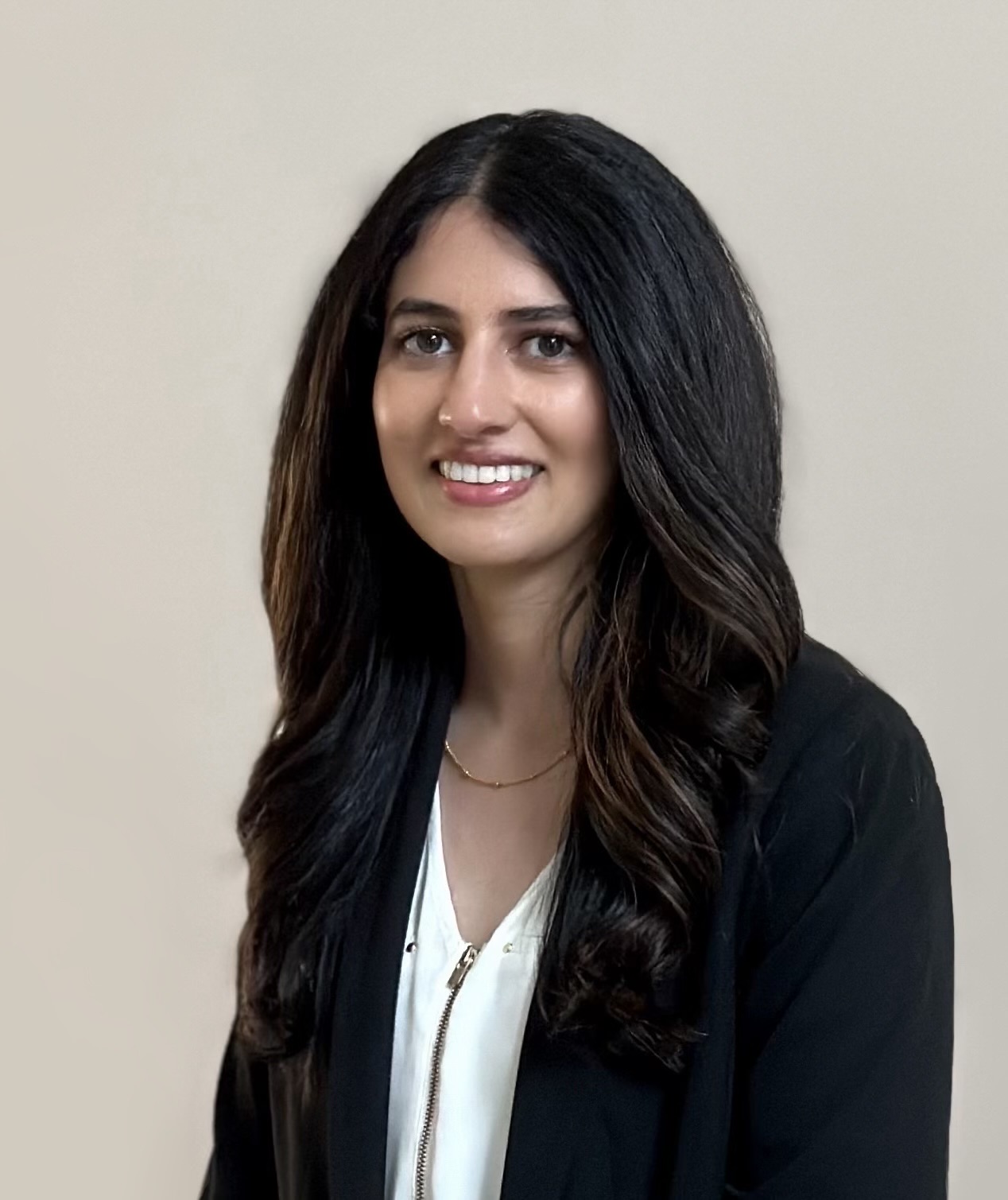
Fatima Malik, policy lead for WMCA
“It shows how civically engaged Muslims in Wisconsin are,” Malik noted. “These numbers show they are engaged, that they care about who their elected officials are and that they want their voices to be heard.”
“It definitely helps, when we’re talking to the lawmakers, to be able to say, ‘Well we did, you conduct a survey of our community and they, your constituents, care about this issue,” she added. “It’s a nice way to leverage our position.”
A majority of respondents also indicated they have no political party preference or that they are independent, she said. Thirty-six percent said they aligned with the Democratic Party and 4% with the Republican party.
“From the 2023 results, there is a shift,” Malik said. “In 2023, 47% identified with the Democratic Party. That went down to 36%. Some identified with the Green Party. Before the presidential election, 30% said they would vote for Jill Stein and 24% were undecided. These numbers show that, in general, Muslims don’t feel particularly aligned with a certain party.”
A change in priorities
“The biggest change since 2023 is on priorities,” Malik said. “In 2024, the top policy priority presidential candidates would be judged on in November were the war in Gaza and getting the U.S. out of foreign wars, followed by religious freedom, healthcare, democracy and human rights abroad.”

“This is a big shift because in 2023, the top issues were healthcare, education and the economy,” Malik said. “We can see Gaza has had a big impact on Muslim’s policy priorities. Muslims are concerned about foreign policy and the way the U.S. is conducting itself.
“They want more of an emphasis on foreign policy and advocacy on Gaza and an arms embargo on Israel and countries committing war crimes.”
The policies WMCA are leading on in Wisconsin “involve religious freedom and accommodations, anti-discrimination measures, immigration and refugee support, culture competency and education and anti-bullying policies, she added. “A majority of our respondents agreed on us leading advocacy efforts in those policies.”
Respondents also noted discrimination within the Muslim community and believe they are important to address. Another thing people care about is outreach to non-Muslims.
Other areas addressed in the survey were education in Wisconsin and what is taught about Islam and Muslims in public schools.






